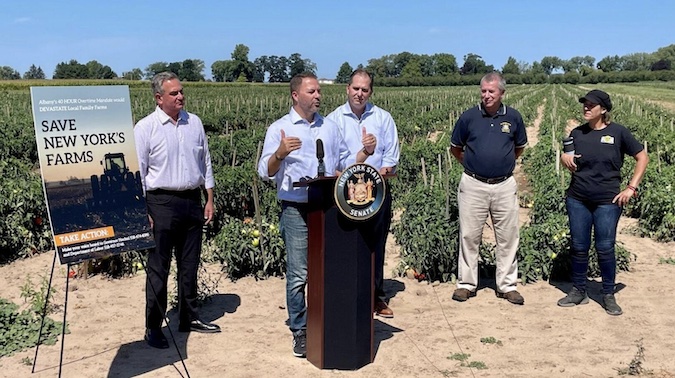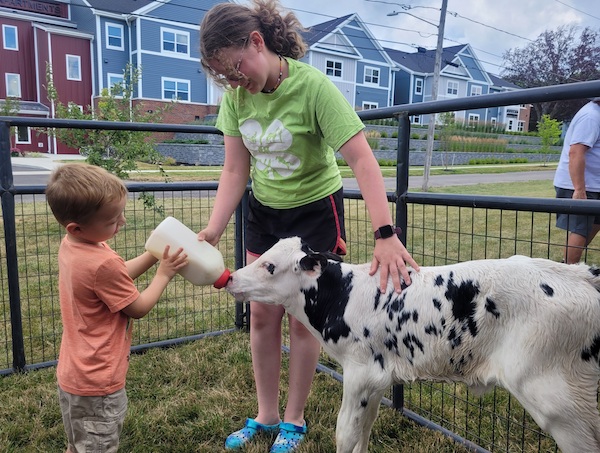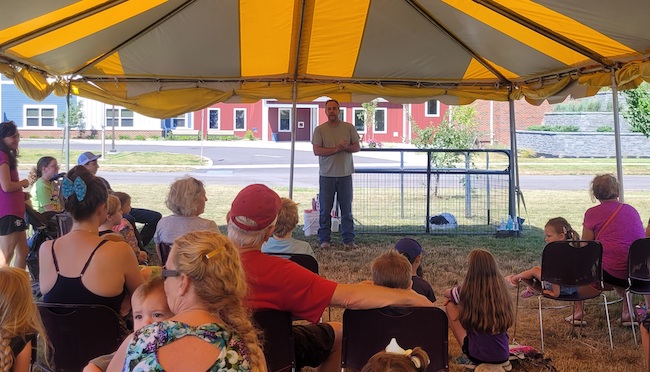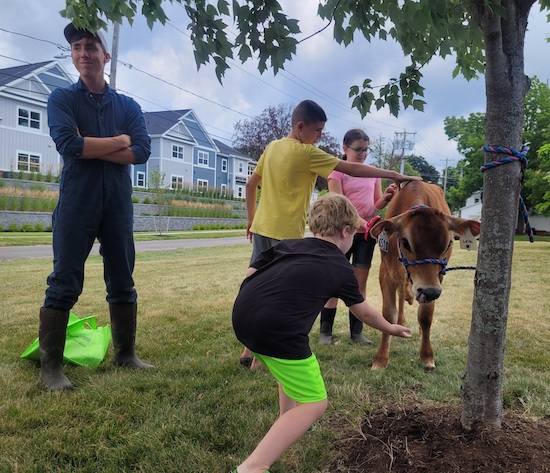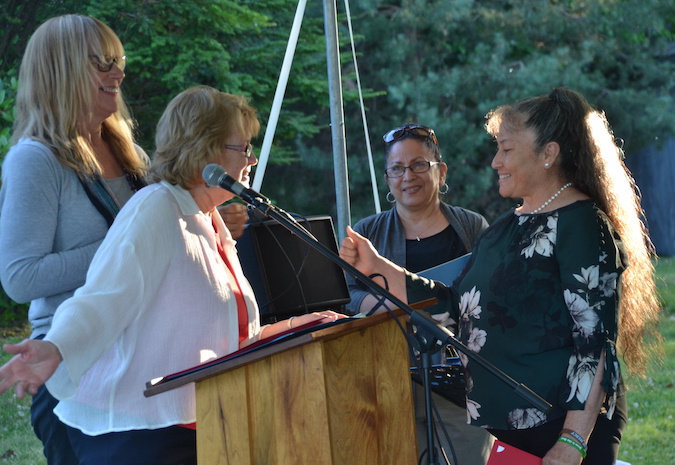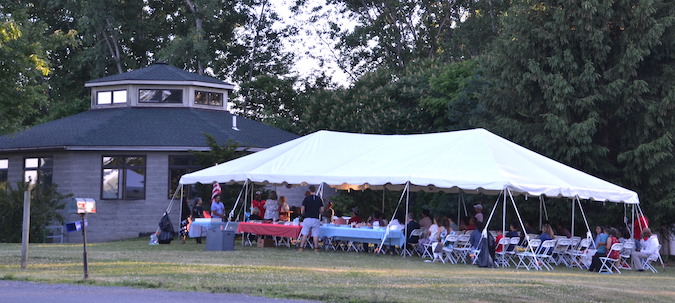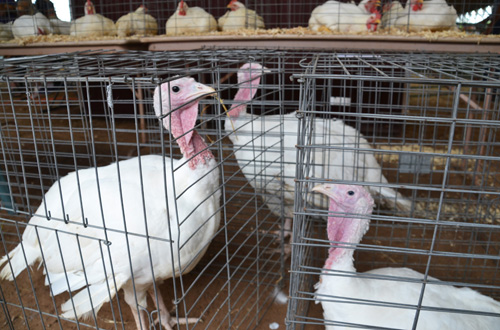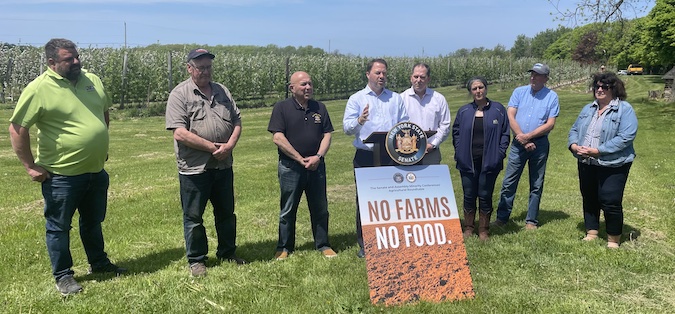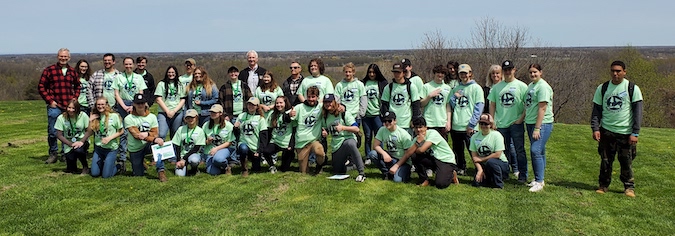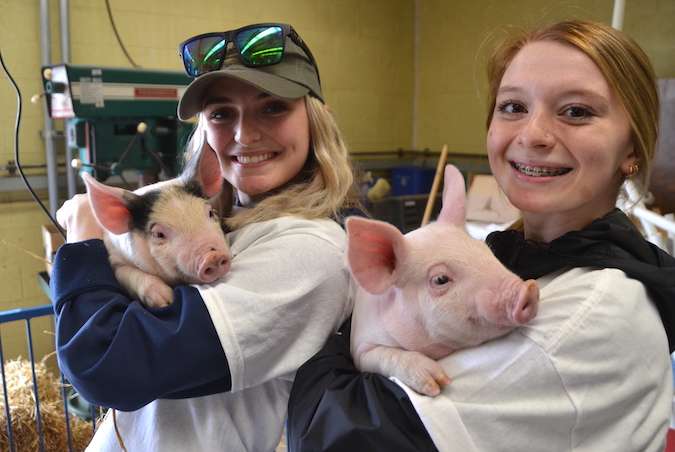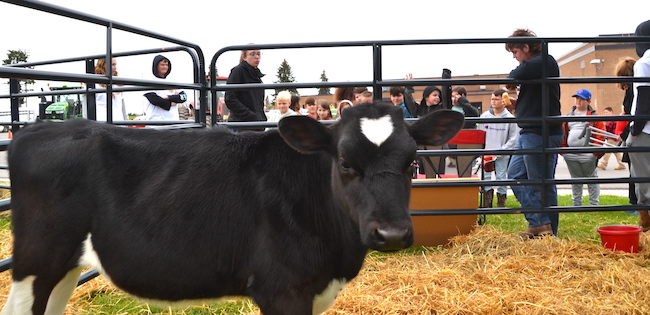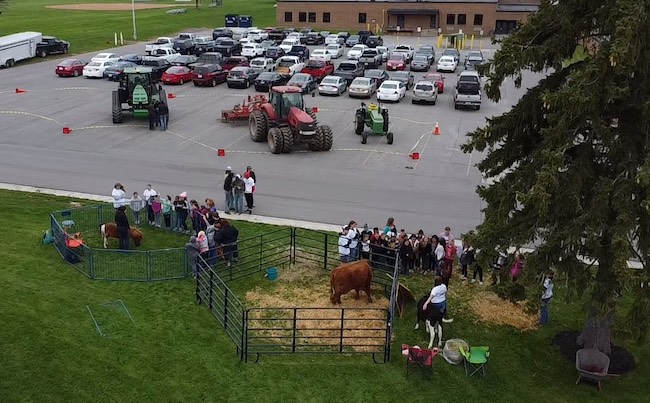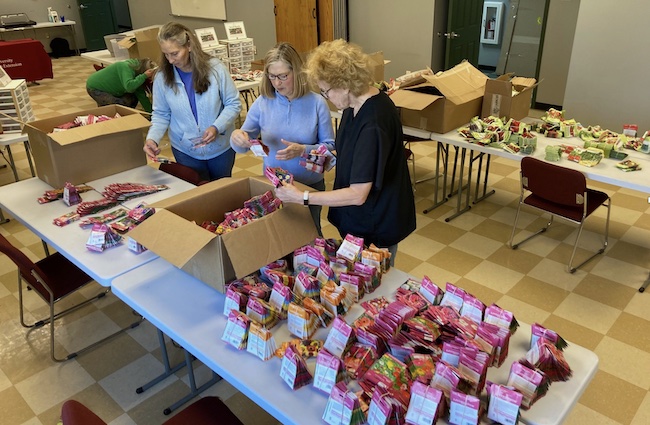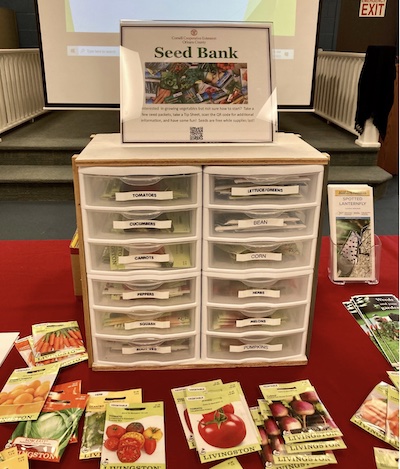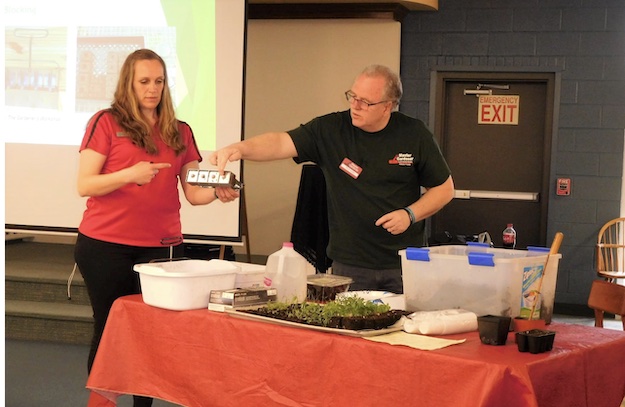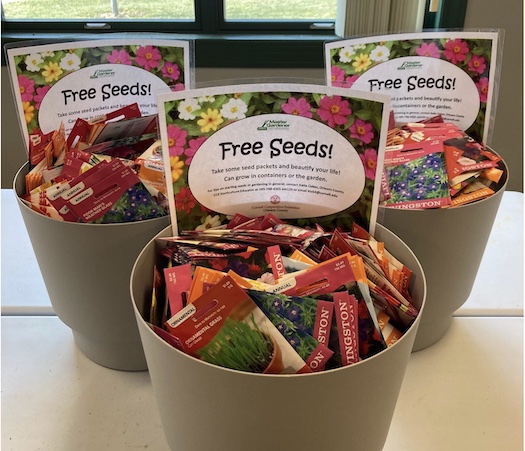Wage Board recommends gradual OT threshold reduction for NY farmworkers from 60 to 40 hours a week
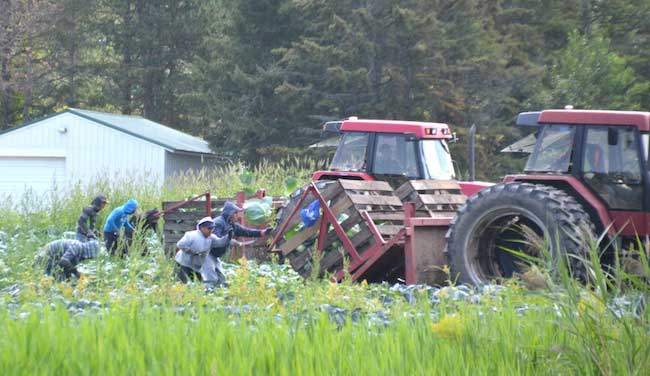
Photo by Tom Rivers: Workers harvest cabbage on Route 98 in Gaines in August 2017
If given final OK, Ortt says change would be ‘monumental disaster that will sadly be the final straw for many of our struggling family farms.’
A three-person Farm Laborers Wage Board voted 2-1 this afternoon in a recommendation that the state reduce the overtime threshold for New York farm workers in a gradual phase-in from 60 to 40 hours a week.
New York Farm Bureau President David Fisher cast one of the three votes and he opposed lowering the threshold. Fisher said the report is flawed and doesn’t reflect the data and witness testimony in hearings that he said showed lowering the OT threshold would hurt farms and farmworkers.
“It barely touches on the testimony of how this will make our farms less competitive and how labor shortages are already a challenge and will only get worse if workers leave the state to seek more hours elsewhere,” Fisher said about the report. “The facts cannot be ignored, even if the report does not give them their due diligence.”
The two other boards members – chairwoman Brenda McDuffie, former president and CEO of the Buffalo Urban League; and Denis Hughes, former state AFL-CIO president – voted in favor of lowering the farmworker overtime threshold in a gradual phase-in to 40 hours over the next decade.
“What’s become clear throughout these proceedings is that action is needed,” McDuffie said during today’s meeting. “It is our duty to protect tens of thousands of farm workers and align their rights with those in other industries.”
State Senate Republican Leader Rob Ortt blasted the Wage Board’s decision, saying it will put many New York farms at a competitive disadvantage with nearby states.
“Today’s decision by the Farm Laborers Wage Board is a monumental disaster that will sadly be the final straw for many of our struggling family farms,” Ortt said in a statement. “The current labor mandates were already a tremendous burden on our farmers, particularly at a time when many of them are still reeling from the pandemic, supply chain issues, and soaring prices.”
Ortt said testimony from farms and farmworkers, warning about the negative impact of the changing the OT threshold, where ignored by the majority of the Wage Board.
“At a time when we have already seen many businesses leave New York and family farms have been forced to shut down, this reduction will cause further devastation to our agriculture industry,” he said. “It will sadly force even more of our family farms out of business, hurt workers, and increase costs to consumers.”
Reducing the overtime threshold for farm laborers is proposed to be phased in over a ten-year period, with reductions of four hours on a biannual basis.
The phase-in schedule would begin on January 1, 2024, with the threshold set at 56 hours; on January 1, 2026, with the threshold set at 52 hours; on January 1, 2028, with the threshold set at 48 hours; on January 1, 2030, with the threshold set at 44 hours; on January 1, 2032, with the threshold set at 40 hours.
The New York Civil Liberties Union praised the decision by the Wage Board and urged the Department of Labor and the governor to formally approve it.
“Farmworkers have waited over 80 years for an end to the racist exclusion that has stolen countless hours of overtime pay,” said Lisa Zucker, senior attorney for legislative affairs. “Gov. Hochul and Commissioner Reardon must prevent another generation of workers from suffering by unequivocally accepting the Wage Board’s recommendation. With Gov. Hochul’s more than dollar-for-dollar refundable tax credit, there is no reason that the overtime threshold cannot be immediately lowered to 40 hours, eradicating this racist Jim Crow policy once and for all.”
Ortt and others many opposed to lowering the threshold are asking the DOL Commissioner Roberta Reardon and Gov. Kathy Hochul to reject the plan.
“I implore state Labor Commissioner Roberta Reardon and Governor Kathy Hochul to reject this recommendation,” said Assemblyman Michael Norris of Lockport. “With New Yorkers already struggling to afford groceries and gas with the rising costs of inflation, it is unfathomable that non-elected bureaucrats at the Farm Labor Wage Board are going to make it harder and more expensive to feed a family in our state.”
Norris said the proposal, if enacted, would result in smaller paychecks because of fewer hours being available for farmworkers. He said they would go to other states where they could earn more money.
“These workers will just move on to other states to work,” Norris said. “Sadly, this decision is just another example on how Albany seems intent on pushing everyone out of our state with burdensome mandates.”




























